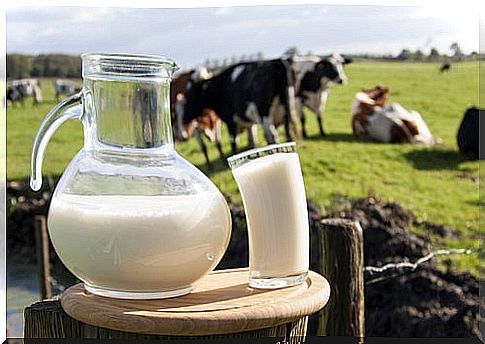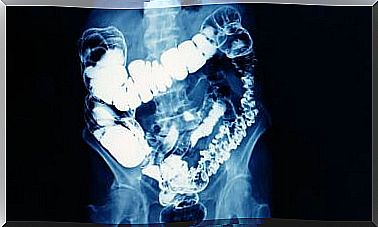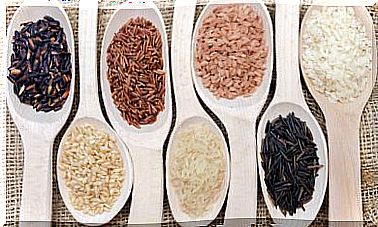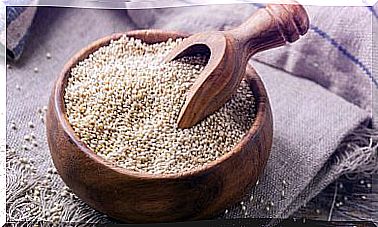Myths About Healthy Eating
There are many of us who modify our eating habits in search of better health. However, there are several myths about healthy eating.
For this reason, we want to present you the most frequent ones today. In this way, you will know how to identify statements that become fashionable but that do not correspond to reality.
Once we propose a change in our philosophy of life, then we find ourselves at a crossroads. Is everything that they “sell” us as such healthy?
Scientific progress
Science is discovering new properties in food that help us alleviate ailments. So it ‘s key to stay up-to-date with new research, as what was once considered an unhealthy habit may now turn out to be.
When there is consensus in the scientific world, national and international health authorities are quick to echo these discoveries. But what happens when the information is not politically correct?
Dismantling myths about healthy eating
It is important to escape myths about food. We recommend that you not accept absolute truths that do not correspond to current science.
1. Saturated fats are bad for the heart. Fake
It has recently been shown that consuming saturated fat would not cause heart problems, but rather metabolic problems (high cholesterol, diabetes, metabolic syndrome …) that would increase the risk.
But the thing does not stop there: modern science knows that other eating habits are those that directly affect the health of the heart. An example of this would be consuming a lot of sugar or trans fat.
2. We should consume more good fats. True
According to new lines of research, reducing fat intake is neither healthy nor does it have to help lose adipose tissue.
In fact, there are “good fats” that are an important source of energy. In addition, they favor the elimination of accumulated harmful fats through a small daily fast.

A recent publication in the British Medical Journal ensures that saturated fats of animal origin not only do not harm heart activity, but also help protect it. Therefore, it would be a mistake to eliminate them from the diet. These studies make trans-fats responsible for these heart problems.
Science recommends the consumption of “good fats” and ensures that 50% of our diet should be supported by healthy fats. Some examples of these types of fats are coconut, avocado, olive oil, almonds, or organic butter.
3. Carbohydrates should be the basis of the diet. Fake
On the contrary, they recommend significantly reducing the consumption of sugars and carbohydrates. In this way, blood glucose levels, one of the risk factors for cardiovascular disease, would be reduced.
For this reason, the classic nutritional pyramid that places carbohydrates as the main source of energy in our diet is being questioned. Thus, it should be replaced by this Food Pyramid. Excess sugar in the blood accumulates as harmful fats, in addition to raising insulin levels.
4. Eating a lot of fruit is the best for your health. Fake
Following this line, if we consume a lot of fruits with a high glycemic index, we could suffer from various health problems . Recent studies published in GreenMedInfo tell us about the toxicity that a high level of fructose would cause in the body.
It would also be advisable not to take the fruit as a dessert but when the stomach is empty, as the body would directly absorb its nutrients quickly and efficiently.
Important conclusions

Depending on our activity, this is how our diet should be. We must know that if we expend more energy we can consume more calories and sugars. On the contrary, if our life is sedentary, the consumption of foods rich in calories should be less.
Starting from this premise, it must be understood that taking few carbohydrates / sugars could be beneficial for health, contrary to what was thought in the past.
The new recommendations indicate that we should consume about 25 grams of fruit per day, since due to its high percentage of fructose they could have a negative impact on health. Likewise, it would be better to consume it between meals to promote its absorption.
For its part, consuming “good fats” would benefit the body. Among these “good fats” are fats of animal origin but not trans-fats, which are considered harmful.
Finally, we can accompany this diet with the following foods:
- Organic fresh vegetable juices
- Proteins from naturally raised fish and animals
- Organic eggs
- Organic vegetables and greens
This is the proposal of science for those who want to avoid the ailments typical of this last century: obesity, diabetes, hypertension and heart problems. Now that you know more about the myths that appear, you can apply what the scientific evidence supports.









